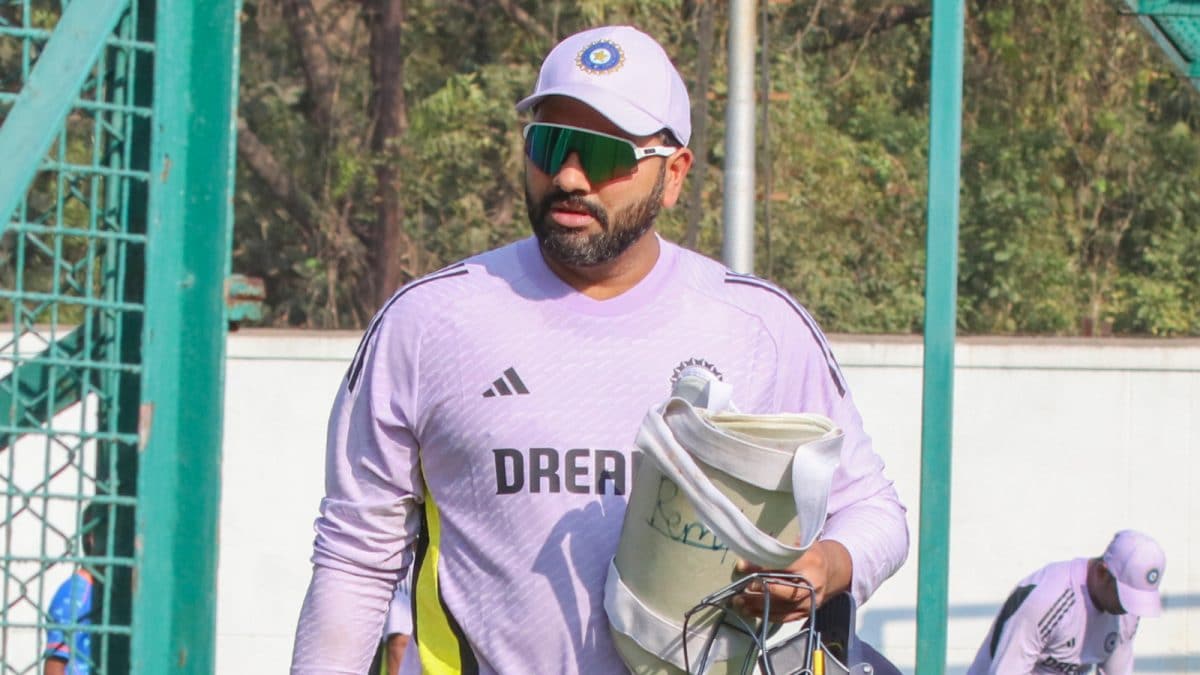 |
|
The Indian cricket captain, Rohit Sharma, recently deflected questions regarding his future in the sport, emphasizing his immediate focus on the upcoming ICC Champions Trophy 2025 and the current ODI series against England. This comes amidst considerable speculation about his potential retirement, fueled by his recent decline in form and his age (nearing 38). The media has been rife with reports suggesting various potential successors, including Shubman Gill, Rishabh Pant, and Yashasvi Jaiswal, each possessing the talent and potential to lead the Indian team. The pressure on Rohit Sharma is palpable, given India's ambitious plans and the expectations surrounding their performance in the forthcoming tournaments.
Sharma's dismissal of questions about his future during a pre-match press conference highlights his determination to concentrate on the task at hand. His statement, "How is it relevant that I talk about my future plans when there are three ODIs and a Champions Trophy?", encapsulates his resolute focus on the immediate challenges. This unwavering commitment demonstrates a professional attitude, prioritizing the team's current goals over personal speculation. However, the underlying concern regarding his form remains undeniable. His recent performance in the Border-Gavaskar Trophy against Australia, where he scored a meager 31 runs across five innings, has further fueled the debate surrounding his future captaincy. This poor performance, coupled with the relatively shaky form of Virat Kohli, has raised questions about the stability of India's batting lineup.
The debate about Rohit Sharma's future extends beyond his individual performance. It also involves a consideration of the broader landscape of Indian cricket and the potential for leadership transition. The emergence of younger players like Shubman Gill, already the vice-captain in ODIs, presents a natural succession plan. Gill's consistent performance and leadership qualities make him a strong contender for the captaincy role in the near future. The selectors will be carefully assessing the performance of all players in the upcoming matches, weighing individual talent against team cohesion and the need for a smooth transition in leadership. The upcoming Champions Trophy, therefore, is not just a crucial tournament for India's cricketing ambitions but also a pivotal period for evaluating the team's leadership and assessing the readiness of potential successors.
The question of whether Rohit Sharma will continue to captain the Indian team post-Champions Trophy remains unanswered. While he has firmly shut down discussions about his future, his performance in the upcoming matches will be crucial in shaping the narrative. A strong showing could quell the speculation and reaffirm his position as captain. However, a continuation of poor form could intensify the calls for a change in leadership. Regardless of the outcome, the transition period presents both challenges and opportunities for Indian cricket. It's a chance to nurture new talent, solidify leadership structures, and ensure the continuity of India's cricketing success on the international stage. The upcoming matches against England and the Champions Trophy will be critical in determining the trajectory of India's cricketing future.
Beyond the immediate concerns surrounding Rohit Sharma's future, the situation underscores the cyclical nature of sporting careers. Even the most accomplished athletes eventually face decline, and the challenge for any team is to manage this transition effectively. The current situation in the Indian cricket team provides a case study in how to balance the experience and leadership of established players with the potential of emerging stars. The careful management of this transition will be key to maintaining India's competitive edge in international cricket for years to come. The pressure is on not just for Rohit Sharma, but also for the selectors and the entire team to navigate this phase successfully. The success or failure of this transition will significantly impact the future of Indian cricket, determining its strength and consistency in global competitions.
Source: 'How Is It Relevant?': Rohit Sharma Shuns Speculations About Future Plans In Indian Cricket
